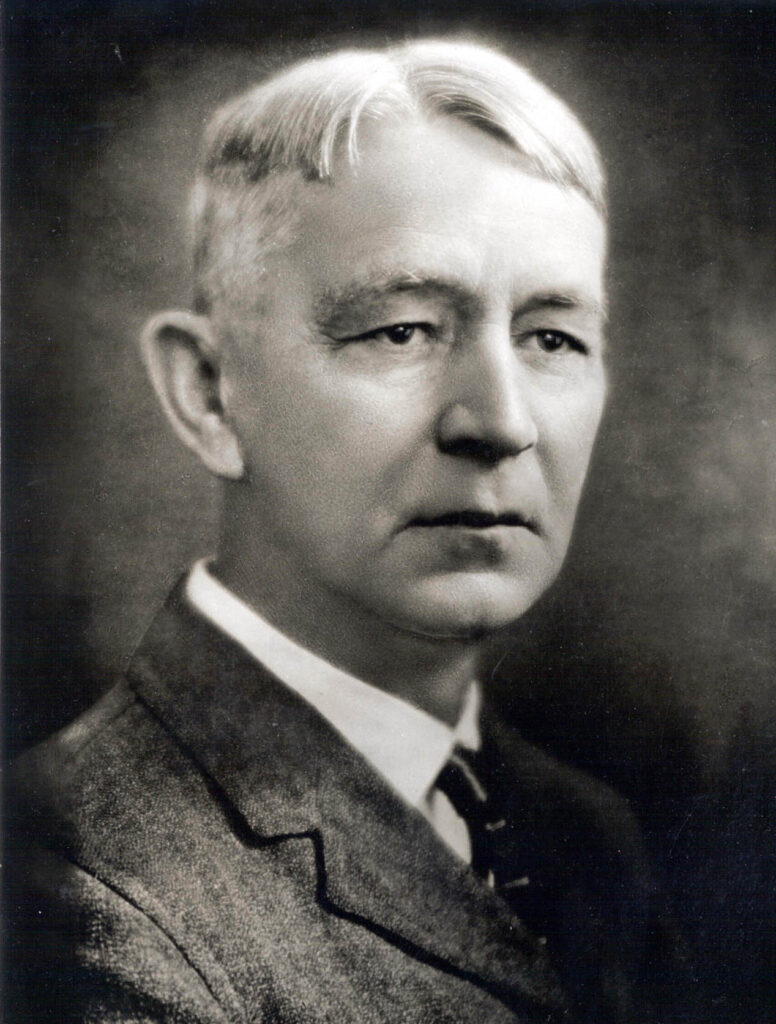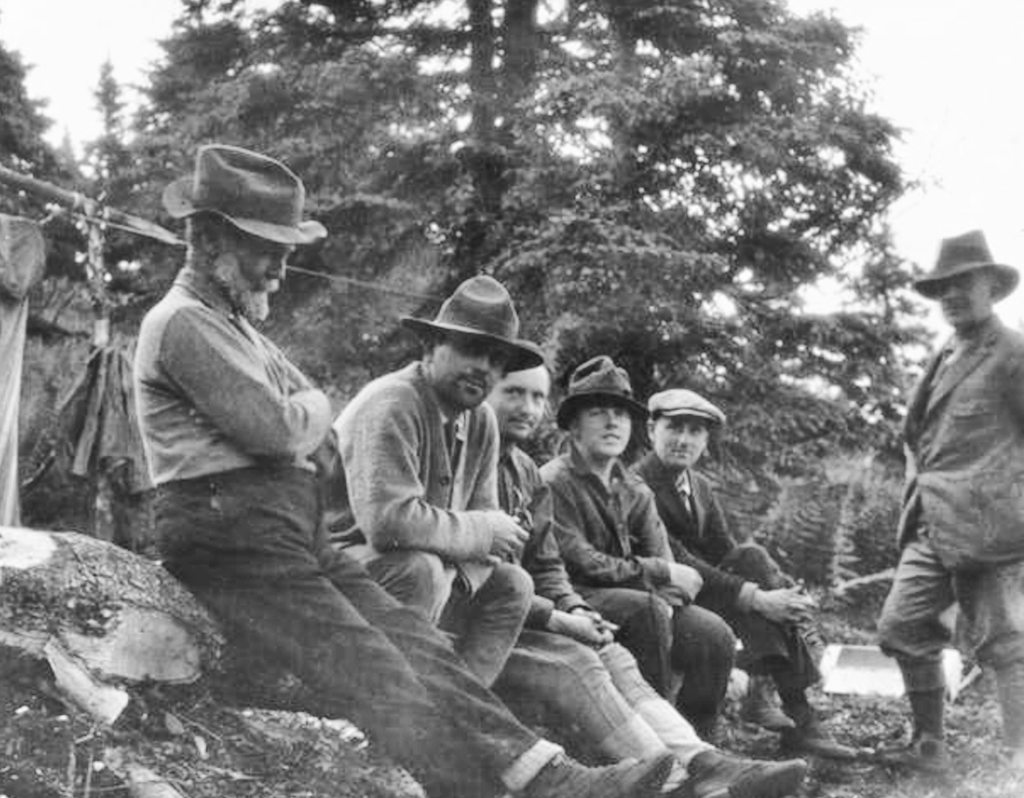
The 2025 recipient of the Rhode Island Natural History Survey’s Posthumous Distinguished Naturalist Award is James Franklin Collins. Collins was a silversmith by trade, working at Gorham Manufacturing Company in Providence, and originally a botanist only by avocation. He proved so adept at taxonomy and field research that he left silversmithing and enjoyed an accomplished career at the Brown University Herbarium and U.S. Department of Agriculture. Collins was widely recognized in his lifetime for his botanical accomplishments, and even though he exemplified the curiosity, diligence, and resourcefulness of a great natural historian, he is not well known now. It is hoped this award will go some way to remedying this oversight.
J. Franklin Collins was born on December 29, 1863, in North Anson, Maine, schooled in Providence, Rhode Island, and originally found employment as a silversmith at Gorham. Collins studied botany on his own time, and his energy and intelligence brought him to the attention of William Whitman Bailey, head of the Botany Department at Brown University (and himself named a Survey Posthumous Distinguished Naturalist in 2009).
Bailey appointed Collins as curator of Brown’s Olney Herbarium in 1894. Over the next few years, Collins continued his studies and took on teaching and other duties at Brown which eventually allowed him to leave Gorham for good. Collins became the head of Brown’s Botany Department after Bailey left in 1906, teaching, researching, and participated in botanizing expeditions throughout the region and beyond. His greatest adventure may have been an exploration of the Chic-Choc Range on Quebec’s Gaspe Peninsula organized by Harvard with a distinguished company that included botanists Carroll W. Dodge, Ludlow Griscom, Kenneth Mackenzie, Arthur Stanley Pease, and Merritt L. Fernald. When at home, Collins helped open the U.S. Department of Agriculture’s Office of Forest Pathology at Brown, where he studied Chestnut Blight, and became known as an authority on the diagnosis and control of tree and shrub diseases and tree surgery, continuing until 1933.

In Collins’ time, it was common for an academic botanist also to participate in the amateur botany community, advising and speaking at local and regional societies, leading field expeditions, and publishing widely both in academic journals and society bulletins. In this, Collins put field botany in Rhode Island on a firm intellectual footing, transmitted practical skills to working arborists, and fostered a community of naturalists working together to understand the botany of the state and region. He died in 1940.